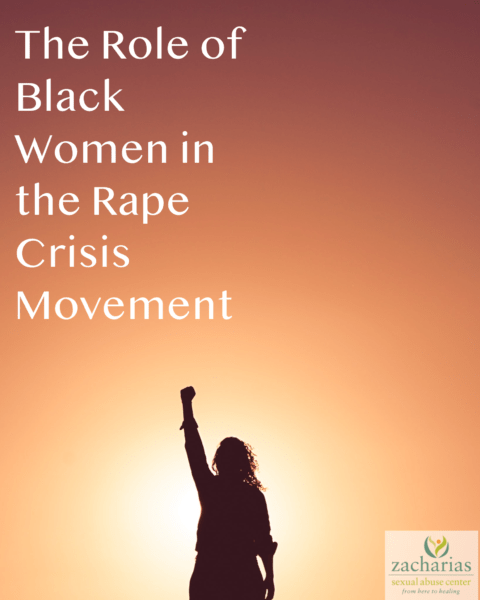Somewhere right now, there is a white girl telling a white boy no. She understands consent. She communicates clearly. She understands her rights and creates healthy boundaries. What she most likely does not know is how much she owes to Black women.
Every day, rape crisis centers offer prevention sessions, public education, crisis support, medical advocacy, legal advocacy, and counseling, all in an effort to end sexual abuse. We fight the oppression of individuals in intimate violence situations, but we are fighting oppression on a larger scale as well. If we as a society do not abolish the oppression of the Black community, we will never abolish oppression in the form of sexual assault. Kimbelerlé Crenshaw coined the term intersectionality, to capture the way that our identities may combine and add to our privilege or oppression. At Zacharias Sexual Abuse Center, we strive to keep the role of Black women central in our work, as they have established and guided the rape crisis movement from the beginning.
We owe a debt of gratitude to the Black women who testified before Congress after the 1866 Memphis Race Riot, to Rosa Parks who fought to end sexual assault, to the Combahee River Collective begun in 1974, to Tarana Burke who initiated the Me Too Movement in 2007, and to countless others. The work of ending sexual violence has always been closely intertwined with class and racial justice, the intersectionality that Black women moved forward and continue to move forward today.
Join us each week this month as we highlight the contributions of Black women to the rape crisis movement, including Frances Thompson, Sojourner Truth, and Rosa Parks.
For further reading:
- How We Get Free: Black Feminism and the Combahee River Collective. (2017). By Keeanga-Yamahtta Taylor.
- Sister Outsider: Essays and Speeches. (2007). By Audre Lorde
- Southern Horrors: Women and the Politics of Rape and Lynching. (2011). By Crystal N. Feimster
- At the Dark End of the Street: Black Women, Rape, and Resistance– A New History of the Civil Rights Movment from Rosa Parks to the Rise of Black Power. (2011). By Danielle L. McGuire
- Between the World and Me. (2015). By Ta-Nehisi Coates.
Written by Kristin Jones, Outreach Supervisor
All ZCenter blog posts are written by state certified staff, interns, and volunteers. For questions on authorship or content, please email kjones@zcenter.org.

